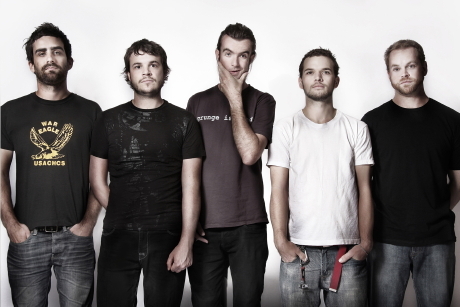
Want all the hottest music and gear news, reviews, deals, features and more, direct to your inbox? Sign up here.
You are now subscribed
Your newsletter sign-up was successful
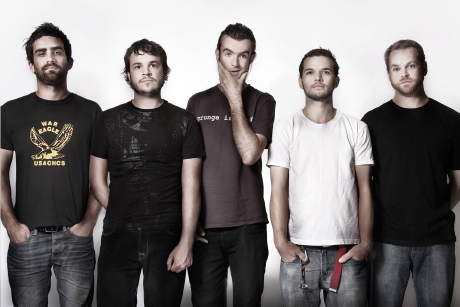
Krnivool (from left): Andrew 'Drew' Goddard (guitar), Jon Stockman (bass), Ian Kenny (vocals), Steve Judd (drums), Mark 'Hoss' Hosking (guitar)
Australia's Karnivool made the progressive rock album of the year in 2009 with their second full-length Sound Awake. Actually, scrub that, it's simply one of the best albums we heard from any genre. Sound Awake is a stunning display from talented musicians pushing the envelope with an incredibly deep and layered record while never losing sight of great melodies in great songs.
Their first tour of the UK in October found them already making waves and Guitarist can report they're every bit as impressive live as we hoped.
Ahead of that tour we talked to guitarist Andrew 'Drew' Goddard about the album, his gear and influences for a Fretbuzz feature in the mag back in issue 323. However here's the full transcript of that conversation exclusively for Guitarist.co.uk.
Your first full length album Themata was a big success in Australia and you could have easily carried on with that sound, but you decided to experiment much more with Sound Awake…
Drew: "I guess it was a conscious thing - we're always going to be a band that's going to keep changing and evolving. We're going to keep it interesting for ourselves but it felt like the obvious direction to go for this album. We weren't consciously trying to be really different to Themata, but it became clear as we went on that it would be a very different album. It felt natural."
You'd written the first part of the song Change and included that on Themata, the next and main part appears on Sound Awake - was that an important bridging song for you between the albums?
Want all the hottest music and gear news, reviews, deals, features and more, direct to your inbox? Sign up here.
"It kind of worked out in that way, but that wasn't a conscious thing either. The story with Change is that on Themata we were approaching the stage of recording and we have a pretty unorthodox way of writing. We take quite a while to do it - we get all the tools together to write the record but it seems as though we frantically assemble it all at the last minute.
"Change was never meant to be a part one and two song. But it looked like it was turning into an epic and when we were approaching the recording of Themata we just ran out of time. We knew we weren't going to have time to put the effort in for that song that was going to be needed.
"So we ended up chopping that song to the part of the build-up and left it as a 'to be continued.' It was very different, it was the last thing we had written and I think it did point in the direction that we were headed. A more exploratory, expansive sound - more textural.
"The same thing happened at the end of the writing process for this one - we have a whole bunch of parts for songs that are still in the works. We had to make some split second decisions about Change even this time - that part should go there, that one there, etc. And it worked - it's ended up being one of our favourite songs on the record. It changes constantly - it never repeats any sections."
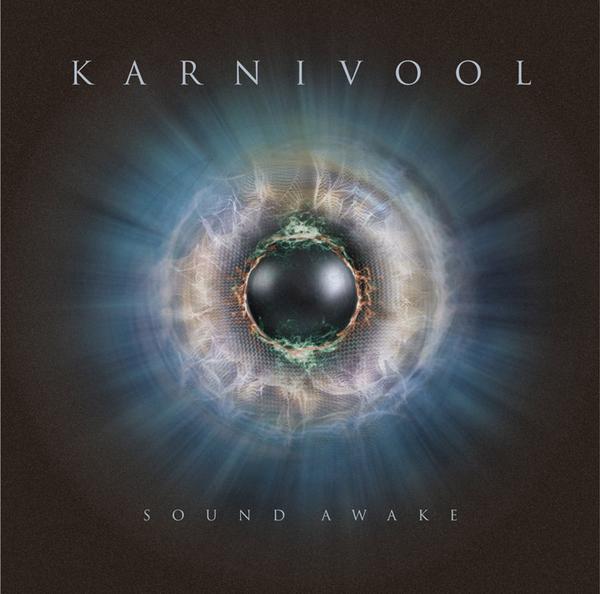
With Themata, the writing stage was pretty much the preproduction, did things changed a lot for Sound Awake in that regard?
"Yes they did - this was the first time we'd written an album as a full band unit. I recorded the drum parts for Themata because we didn't have a drummer at the time. And the other guitarist Hoss [Mark Hosking] didn't come on board until the end of the writing process.
"We wrote as a unit this time because it was gelling from the start - we could jump in the room a lot and just experiment and jam. We recorded a lot and sifted through it - piecing together the gems from the jams. But a lot of it was also thought out and structured. It was one giant experiment really, we're stoked with it and it feels like a stepping stone - like we're still learning."
It certainly sounds like a lot of work's gone into this album - can songwriting be a hard process for Karnivool?
"It really take it out of us. It's a pretty lengthy process and we all put a lot of heart into it. It's ultimately rewarding - It's so relieving to get something like that finished. But it's always going to be that way with us, there needs to be a sort of tension I guess. We don't deliberately make things hard for ourselves. But in a way it comes through in the music - you can hear the tension. If it was a walk in the park I think the songs would sound very different."
How do you and Mark differ in your playing approach?
"Hmmm… that's an interesting one. We just kind of feel it out and not step on each other's toes. It's about filling the gaps that need to be filled. With Sound Awake we really wanted to create a sense of space - something you can walk inside of and look around from different angles.
"Let the sounds breathe and if there's a space that feels like it needs something, a sparkly chimey lead then one of us will move up to that area and take care of that. It's about making the sounds interact - not just with guitars but with the bass, vocals and drums."
That's something that comes out very strongly on the album - there's a real sense of equal partnership in the interaction between the instruments…
"I don't really find Sound Awake to be a guitar-driven album. Themata was a lot more riffy, this one is a lot more textural - more space. It's a drum and bass album. What Mark and I tried to do is find our place sat above those guys, musically, because those two are their own sort of beast. They're a four-armed single-minded thing when they get into a room! We're absolutely stunned to hear how they do what they do. A lot of it was the rhythm section driving it on this album and we did what we had to do in terms of colouring it."
But you and Mark add a lot of the depth and layers to the album as a result…
"Thanks. I guess that was our role after the rhythm tracks layered down an interesting foundation to work on."
It's different to how a lot of guitarists would approach things - many would want to go into the writing and recording by taking the lead…
"I was the main songwriter on Themata so this was a really good exercise for me personally this time around to take a bit of a back seat. The guys used to call me Mr 51 Per Cent during the Themata days because what I said often. I was more conscious of it this time but I sort of needed to be because John, our bass player, came to the fore and played a crucial role. But a lot of ideas would still stem from guitars and guitar melodies."
I can't remember the last time I've heard the bass guitar on an album so pronounced as on Sound Awake…
"It's just so thick - the sound reminds me of a warthog! [does a very accurate warthog impression]. I was blown away by the sounds he managed to get on this album. Guitar-wise we messed around with a lot of funky sounds - different textures that we hadn't experimented with before."
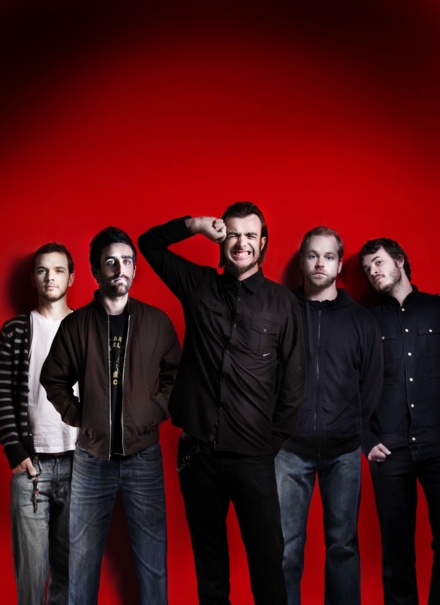
What was your main gear for this album?
"Main guitars were Paul Reed Smith, that was my first real guitar suppose, a SE 24. But I also have a Custom 24. Hos has got a Custom, but I prefer the CE's bolt-on construction, I don't know what it is, but I've just come to know that guitar better over the years. We used a bit of Les Paul too, and a Tele here and there for the more chimey top end stuff.
"We used heaps of amps - anything we could get our dirty mits on! We made a big stack, a Great Wall Of China of amps around the studio. We had a Marshall JCM 800, an old '73 Super Lead plexi head, which was awesome.
"That was used in combination with the main amp, that was used on pretty much every song; a Peavey 5150. That's my old brick that I've had for years - a one trick pony but I think the one trick it does, it does extremely well. It's the meat of the meat and potatoes. That's my main amp live.
"We also used a Bad Cat. Amazing boutique amps. We used that for a lot of the clean stuff - good for the mid-range if you want to hit a really precise spot. We used a Sherlock Fathead too - a local manufacturer. It's a guy called Dale Sherlock, he custom makes these amps and we used them on the clean parts as well."
There's some incredible delay sounds on the album, what are your favourite units?
"I absolutely love delay - I love the dimensions and space that it gives the music. For this album it was a mixture of a few things. I've got a Deluxe Memory Man for that slightly analogue sound but most of it was digital with the stereo sounds.
"We've just started to experiment with using Pro Tools plug-ins with our live setup too. We can get some wild setups - some of the plug-in stuff is just nuts. Plus, Hos has a MIDI pickup on his guitar and is triggering sounds live onstage. We're blending that with our normal setup and experimenting with having lots of toys to play with."
Do you still use a BOSS GT-3 multi effects unit?
"Yes I do. The BOSS GT-3 is the old trusty floorboard and is good for the live on-the-fly delays, especially when I need to change the delay times mid song. Multi effects are really good for that but in the studio it was mainly digital delays and plug-ins. You have a lot more control that way and the sounds of digital delays nowadays are getting to be immaculate."
So is the use of plug-ins live a necessity for recreating the sounds of this album live?
"It's one way to do it - there's a couple of delays in the song Simple Boy from [Pro Tools plug-in] SoundToys. The delay is actually an octave up so it's almost like a harmonizer delay. That's going to have to be a plug-in - we're running that as a sample then running a normal delay over it.
"We always have to simplify to a certain degree when we play live but we try to recreate the sound as closely as possible. Sometimes at the live show when it's so loud and in your face you can afford to lose a couple of layers. Then you can hear everything breathe a little more."
How do you get that bee swarm sound on Set Fire To The Hive?
"That's a ZVex Fuzz Factory. Amazing little pedals. You ramp up the compressor so it's a really squished narrow sound, nasal I get. It's that in conjunction with hammer-ons plus the other guitar on the right hand sound is playing a semitone out from the main riff so it gives that droning, bee-type effect.
"The Fuzz Factory is one of our favourites - it's an amazing toy. If you put it first in your effects chain, it feeds back a lot and some of the feedback sounds you get are crazy.
"The sound at the start of Change, the palm muted stuff that resonates and almost sounds like a Didgeridoo - that's the ZVex. When we recorded it we did it DI with a clean signal directly from the guitar so if we liked the take but didn't like the guitar sound we could always run the original take back through a different amp and get a different sound.
"But as we figured out later, if we wanted to mess around with some of my settings on the pedals while that DI track was playing we could do that. So we ran that sound back out and I fiddled my effects. But I had to figure out how to do that live so I ended up getting a thing called a Third Hand - which is a mechanical expression pedal that runs a port over to another pedal. You take off one of the knobs and you can then turn the knob while you play. It acts as a third hand and it doesn't look pretty, but it works."
So you don't make things easy for yourselves…
We love a challenge - it's more fun that way!
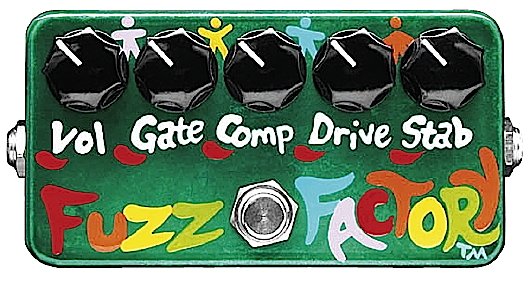
Is there one piece of gear that you couldn't live without?
"Probably a delay - I think I'd be lost without my delay. It's like when the lights are turned on in a nightclub at the end of the night and you're like, Oh shit! If I had to pick a favourite unit it would be my [Electro-Harmonix] Memory Man - it's just such a distinctive sound. Plus I love the noise you can get when you make it feed back like in Set Fire To The Hive, it's a lot of fun."
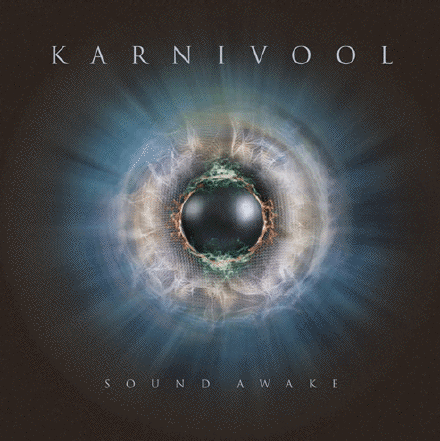
Themata had a hybrid drop B tuning, it's almost like a signature tuning for you. Did you use that again on some of the new songs? Or have you experimented again with more tunings?
"It is used in places. New Day was one of the first songs we wrote for the record and that was in the old half drop B tuning. But we've messed around with a lot of other tunings, which is another way we've made things hard for ourselves! We've got about five or six different tunings on Sound Awake using capos for some.
"I love alternate tunings because I find that if I keep changing things around I won't just go for the things I know already when playing. I change it around so I can fumble may way around the fretboard and find happy accidents. Put myself out of my comfort zone.
"Other people have different ways of doing that but that's my way of keeping things fresh. Hoss stays in the C tuning for most of the time, he's become accustomed to that. So we're playing in different tunings from each other a lot of the time. We don't make it easy for ourselves."
Is it fair to say you have to bring a fair few guitars on the road with you now?
"Yes we do. We've got a guitar tech who's run off his feet - we like to keep him busy!"
Did you always plan to work with Forrester Savell again for this album?
"To be honest after Themata, for a couple of years after we started writing I thought, I'm not going to work with Forrester. I had romantic ideas about going overseas and hooking up with big Mr X producer but as time went on we found ourselves in the same position as last time and racing to get things done at the last minute. We realised pretty quickly that Forrester was going to have to be the guy and I'm really, really glad it worked out that way.
"During the Themata recordings Forrester and I were very strong in our opinions and both pushed in different directions a lot of the time. Four years after the album we'd both done our own thing and grown up a lot. This time it was a really enjoyable experience and it was a privilege to watch him work actually.
"He'd get there at 9 am when he was mixing the record and would just get right in the music - you couldn't shake him out of it. Over 12 hours he'd just be in that space and just immerse himself in it. He's got an amazing set of ears - he knows us and we know him. Plus he's got some big boots that were needed to kick our asses because we did need that. It's a combination that seems to work."
You seem to be very comfortable playing in unusual time signatures and make them work really well melodically. Do you think that is because you also play drums and just approach things from a different place compared to most guitarists?
"I think that's got a lot to do with it. The odd time signatures aren't because we consciously sit down and decide a part has to be in 7/8 or whatever. It just happens; we jam and it comes out that way. It's the tension and release - or the rise and fall - you feel when that kick or snare needs to happen.
"When I come up with guitar ideas, or the songs stem from guitar ideas, they're approached from a rhythmic perspective. Meshuggah are a pretty big influence on us - which might be pretty obvious to anyone familiar with them. I love the way those guitarists approach what they do in a rhythmic way - they paint a picture of things stretching, bouncing and falling.
"A lot of the time when I come up with a riff, I think about it rhythmically. It comes through and I guess that has a lot to do with the drumming background. Whenever I'm walking - and I'm pacing now - I've always got a rhythm in my head. There's always one flying through me at some point."
You're a drummer at heart then?
"I'm a drummer at heart but I think Steve far surpasses me and I think he's the most enjoyable drummer I've ever had the chance to play with. He's a lot of fun to jam with, especially as I come from a drum background myself. We just seem to lock in and have the same idea of what we think is good."
Looking back, was Ian [Kenny, Karnivool singer] an influential person for you when you first started playing guitar?
"Yes, this is early on before Karnivool had started. Kenny was a friend of my brother's and used to come round after high school and bring his little practice amp and guitar playing Nirvana, Metallica, Slayer and Carcass songs. I thought it was awesome so I got him to show me a couple of tracks and I went from there. It was at the same time as I picked up the drums. I learned a few riffs from Kenny and my dad showed me some chords."
It's interesting that he was an early inspiration but he doesn't play guitar in the band much…
"Yes but when Karnivool first started he played. The band has been together in some form for over 11 years and when we first started he was playing guitar - I actually joined as a bass player. They were playing a bunch of covers at the high school ball and needed a bass player.
"I ended up writing some songs on guitar and it went from there. Kenny slowly played guitar less and focussed on the singing. We went through a couple of drummers and other members to evolve into the band we've got now."
What other guitarists have inspired you?
"Kim Thayil from Soundgarden was a big influence, even Kurt Cobain too. He showed me you don't have to be a very good guitarist to write great songs. I grew up on the whole grunge thing. But Dimebag was unbelievable, Fredrik from Meshuggah has been a big influence. It's more bands as a whole that inspire me though - what the musicians create together rather than just the guitarists."
Have Tool been an important band for Karnivool?
"Definitely - Ænima really resonated with everyone in the band. If came out in '96 and I was so intrigued by this dark, expansive music. It's the music that I really get into - the music you don't quite get at first but it draws you back into it. You have to give it a bit of attention and when then you finally get a more intimate relationship with the album as time goes on.
"Ænima for me was like Pink Floyd, who I discovered after Tool. Radiohead have been like that too - as the years go on I fall more in love with the band. The songs have a life with you personally that grows and evolves, it changes every time you listen to it."
It seems like there's so much talent in Australian rock right now with yourselves, Cog, Dead Letter Circus and The Butterfly Effect to name just a few. It's obviously something that hasn't really hit Europe yet but why do you think the rock scene in Australia has developed so well?
"As far as the scene goes and those bands you mentioned it's really healthy over here. It's strong and I think we've really got our own thing happening. When we started playing we were told that there was no market for our kind of music in Australia, especially coming from Perth - the most isolated city in Australia.
"We were told to move over to Melbourne and write poppier songs but we knew from the start that was wrong. We'd see a band like Tool come over and sell out arenas - there was a market for it, they just weren't aware of it.
"Cog were the band that really kickstarted things as far as heavy alternative progressive music went in Australia. They toured and toured and toured to build their own following. They built a formidable fanbase and we jumped on the back of one of their tours after we'd just released Themata, it was pretty evident after that that there was an audience for what we were doing.
"We're confident we can take that internationally and there will be ears, minds and hearts that are open to what we're doing. We're going to give it our best shot and I suppose we're taking our first stride into that area now - coming over to your next of the woods for the first time [UK] and the US for the second time. We're getting a lot of messages and positive feedback - a lot from Europe."
A lot of the Australian bands that we've heard have progressive elements - the approach to the guitar work sounds especially fresh. Is it something in the water over there?
"It's cool but I don't know why. The scene here in Perth is especially strong and a lot of people in Australia think it's the strongest in the country because of the sheer amount of bands, and the quality of them. It's pretty staggering as it's like an overgrown country town here - it's so isolated."
Maybe that isolation helps the bands to be unique?
"I think it definitely has a factor in there."
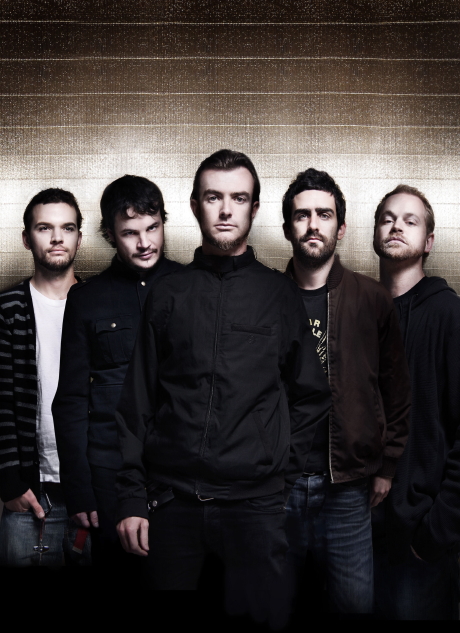
Ian's had success with his other band Birds Of Tokyo in Australia too, does that cause any conflicts with Karnivool's schedule or has it had a positive effect?
"It makes things interesting - we have to be on our toes and plan everything well in advance. We need to think well over 12 months in advance because they're very busy and doing really well. I think it's turned into a bit of a symbiotic relationship in Australia now where both bands are working in each other's downtime and it's had a positive impact on Karnivool.
"We gave Birds Of Tokyo a bit of a leg up at the start and then it got to the stage where we had been out of the picture for a while and they helped give Karnivool a bit of a kickstart when Sound Awake came out.
"Also, Kenny is a very spontaneous creator. He often describes it that he stands there and it just comes out. He waits around for us to sit together so he has something to sing over a lot of the time, with the odd exception when songs are written around a vocal line.
"So it was really good for Kenny to go and keep his creative juices flowing with Birds and keep banging the albums out - which they've done in between us making Themata and Sound Awake. He needs to be doing that and it's worked out well."
And the extra time you spend on Karnivool's albums really shows, fans keep going back to them again and again…
"That's the idea - we like the longevity. It's also longevity for us to keep enjoying the songs. If we're going to be playing them for the rest of our lives we want them to be a) challenging and b) fun. We want to have songs that can even keep evolving and we can mess around with them as time goes on - put new spins on them and expand different sections. That's something that appeals to us as well."
How's the album working out live? It must be a challenge to recreate the songs live but all you need is to head over to YouTube and it's evident you're really making it work incredibly well!
"It is challenging but what I really don't like when I'm playing is thinking. I like to get up there and do it and enjoy myself. The aim is to get everyone song to the stage where it feels so natural that we don't have to think about it. We can focus on having the confidence to mess around with arrangements. It is challenging but it's the way we like it."
You've got quite a unique record deal too, that allows you to release the album internationally but retain creative independence in Australia with your music…
"I never imagined in our wildest dreams that we'd have the Sony logo on the back of one of our albums but we're absolutely blown away - it was an offer that was too good to refuse because from the start we'd been making our own calls and not compromising at all. We're control freaks when it comes to what we create and all the decisions have to come from the band - we wouldn't have it any other way.
"Someone at Sony over here really liked the band and they were pushing them for ages and ages. But it came down that the only way we'd be interested is to sign internationally but retain our independence here in Australia and it worked out. We've got a leg up internationally and have still got our home turf as our own - it's a foundation to come home to. We do what we want to do."
For more info on Karnivool visit the official Karnivool website.www.myspace.com/karnivool

Rob is the Reviews Editor for GuitarWorld.com and MusicRadar guitars, so spends most of his waking hours (and beyond) thinking about and trying the latest gear while making sure our reviews team is giving you thorough and honest tests of it. He's worked for guitar mags and sites as a writer and editor for nearly 20 years but still winces at the thought of restringing anything with a Floyd Rose.